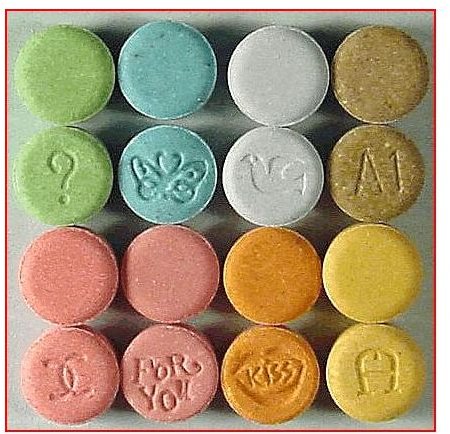The Benefits and Risks of MDMA in Treatment of Post Traumatic Stress Disorder
Carefully Considering those that Could Benefit and not be Further Harmed
MDMA in treatment of post traumatic stress disorder is being considered by the FDA, which might allow mental health professionals at Veterans Administration hospitals to use it in a very controlled environment in conjunction with other treatment plans for combat veterans with severe PTSD. The next phase of the Multidisciplinary Association for Psychedelic Studies (MAPS)-supported trial has been approved following the apparent success found in their first studies, discussed below.
This approach is not without a contentious debate (MDMA has been illegal since 1985) in both the medical community and the public at large. In the private sector, MDMA (commonly known as Ecstasy or E-bombs) has also been alleged to be effective in dealing with PTSD sufferers with flash-back like memories, anxiety, and severe depression as a result of sexual abuse, rape, and other forms of brutal trauma. Before we cite the relevant studies pointing toward a healing benefit, it’s vital to introduce a very important point. There is clearly a risk in taking it!
Doctors and researchers argue about whether this drug is addictive and many of them on the pro side point to the studies that say that this drug has no risk of getting a person addicted. In the real world, outside of carefully controlled clinical treatment procedures, if someone has alcoholic tendencies, a multi-substance abuse disorder, or even an addictive personality, the amazingly delightful high (I will neither confirm nor deny personal experience) one gets from this drug most certainly is. It will triger the craving allergy inherent in an addict. All the doctors in the world might say MDMA isn’t an addictive drug, but they don’t know what they’re talking about in terms of an addict who will chase that original high to the gates of insanity, incarceration, or death. If you’ve ever been close to an active addict or alcoholic, than you know that there is no logical or sensible reason to explain why they would voluntarily embark on a self-destructive, spiraling journey toward incomprehensible alienation and demorilization.
For someone trying to recover from the disease alcoholism or addiction (the statistics are very bleak), it only takes one mind-altering substance to activate that vicious cycle. As soon as they got out of the carefully monitored procedure in a hospital, resurrecting that mood-altering experience with this drug would be a priority. I’ve seen it personally in veterans I served with who would scarf down 15 pills at a time trying to recreate the first high which can never be achieved. So this is an extremely bad idea for a patient who has a history of substance abuse problems, alcoholism, or even the hint thereof. With all that said, it’s reasonable to assume that the majority of the population, and thus veterans, do not fall into this category of suffering from substance abuse afflictions. Therefore, if MDMA can relieve and even eliminate the devastating and sometimes tragic nature of PTSD in combat vets (who sacrafice their lives and their minds to uphold and defend the tenets of the constitution in conditions that are unimaginable to the majority of Americans), and non-combat vets who can be just as, or more, truamatized; then it should be used for that purpose.
Studies Pointing Toward a Positive Result with MDMA in the Treatment of PTSD
However, with patients who exhibit no substance abuse signs this could be an innovative treatment plan which could set them free from the ravages of PTSD. The VA hospital in Denver is most likely the first government medical facility that will try this in War on Global Terrorism veterans who received no relief from their symptoms from anti -depressants, psychotherapy, relaxation training and support groups. It’s a last house-on-the block attempt to help a patient, so let’s get to a few of the studies.
The most promising study that has garnered much attention in the news was conducted by lead researcher Dr. Michael Mithoefer (a psychiatrist in private practice in Charleston, SC) who found that “the MDMA seemed to temporarily decrease fear without blunting emotions, and so it helped patients better process their grief.”
Mithoefer and his colleagues from the Medical University of South Carolina and the Multidisciplinary Association for Psychedelic Studies in Santa Cruz enrolled 20 patients with severe PTSD, whose symptoms had not been relieved by traditional psychotherapy or medication. Of the 20 volunteer patients, eight patients were given a placebo and the other 12 were assigned randomly to a group that was given MDMA.
Neither the patients nor clinicians had any knowledge about who was getting the active MDMA medication. At the end of the trial, more than 80 percent of the patients who received a combination of MDMA and psychotherapy no longer met the diagnostic criteria for post-traumatic stress disorder. The link below to PychCentral.com gives a more detailed analysis. Dr. Mithoefer’s results were published in the July 19th edition of the Journal of Psychopharmacology.
MAPS (Multidisciplinary Association for Psychedelic Studies) is also a good source for monitoring many other studies conducted all over the world that also demonstrate positive results. Here’s a manual that talks about some of them in detail on their website at www.maps.org. As this is an innovative and controversial form of therapy, more information and results will likely make their way into the news. And for updated results and new studies, the listed sources below will surely keep you abreast of any developments.
Sources
Journal of Psychopharmacology @ https://jop.sagepub.com/content/early/2010/07/14/0269881110378371.abstract
PsychCentral @ https://psychcentral.com/news/2010/07/20/mdma-may-have-role-in-treatment-of-ptsd/15778.html
MAPS.org @ https://www.maps.org/research/mdma/ptsd_study/treatment-manual/053005/intro.html
Taylor Lynne Trentwood, Ph.D. article for the Examiner.com: https://www.examiner.com/life-coach-in-denver/fda-approves-ecstasy-new-treatment-of-iraq-war-veterans-with-resistant-ptsd-encouraging-results
Image Courtesy of Wikimedia Commons from the Federal Drug Enforcement Agency available for the Public Domain:https://commons.wikimedia.org/wiki/File:Ecstacy_monogram.jpg
